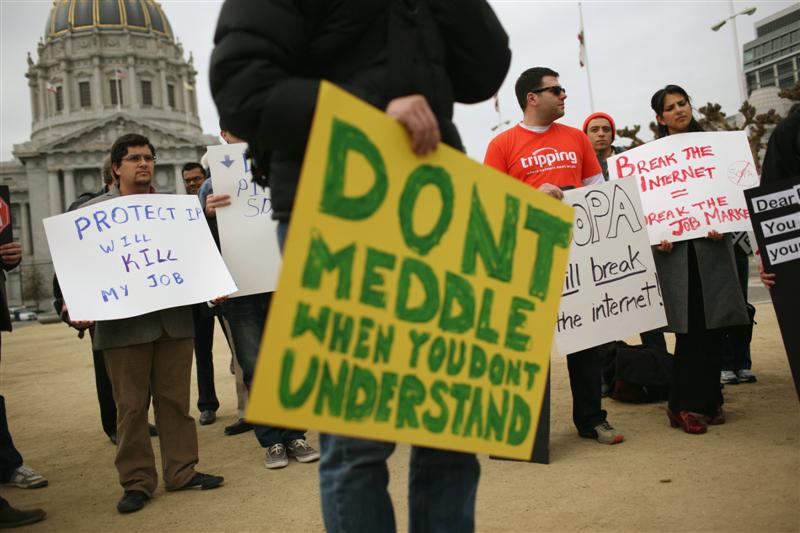New Bipartisan Bill Threatens Online Privacy

Advocates for electronic privacy and a free and open internet are warning that the Cyber Intelligence Sharing and Protection Act (CISPA) threatens to further degrade Constitutional rights and liberties in cyberspace if it is not significantly amended. The bipartisan bill, which aims to facilitate information sharing between intelligence agencies and corporations regarding cyber security threats, already has over 100 co-sponsors in the House. Critics, however, state that the broad language used in the legislation will effectively allow for increased government and corporate surveillance of private communications without any reasonable form of oversight.
In December, before the bill had even passed through committee, the Center for Democracy and Technology detailed numerous concerns regarding the proposed legislation, notwithstanding their support for the overarching goal of increasing information sharing for the purposes of enhancing cyber security. As Greg Nojeim wrote at the time:
“The bill has a very broad, almost unlimited definition of the information that can be shared with government agencies notwithstanding privacy and other laws . . . is likely to lead to expansion of the government’s role in the monitoring of private communications as a result of this sharing . . . is likely to shift control of government cybersecurity efforts from civilian agencies to the military. Once the information is shared with the government, it wouldn’t have to be used for cybersecurity, but could instead be used for any purpose that is not specifically prohibited.”
The Electronic Frontier Foundation argues that the legislation would create “backdoor wiretaps into our daily communications.” “These “cybersecurity” bills would give companies a free pass to monitor and collect communications, including hige amounts of personal data like your text messages and emails. Companies could ship that data wholesale to the government or anyone else provided they claim it was for “cybersecurity purposes.”
Earlier this year, online activists helped to spearhead a surge of opposition to the Stop Online Privacy Act in the House and the Protect IP Act in the Senate. The two bills were scuttled following the public outcry, which was helped along by the support of internet bigwigs such as Google and Wikipedia. Many advocates of digital rights are now comparing CISPA with SOPA and Protect IP. At Tech Dirt, Mike Masnick argues that the broad support for the new bill in the Congress demonstrates the tone deafness of the Democratic and Republican parties.
“The truly amazing part to me is the fact that politicians in Congress would simply think that there's no problem making massive internet regulatory change without actually looking at the impact on ordinary users and how they feel about it so soon after SOPA. It seems clear that many elected officials still haven't received the message that politicians should not be mucking with the internet when they clearly don't understand it.”
Supporters of the bill claim it is necessary to defend the nation's electronic infrastructure against state and non-state cyber security threats. Surely, however, this can be done without further eroding rights such as those guaranteed by the Fourth Amendment to the US Constitution. As Benjamin Franklin said: “Those who can give up essential liberty to obtain a little temporary safety, deserve neither liberty nor safety.”



